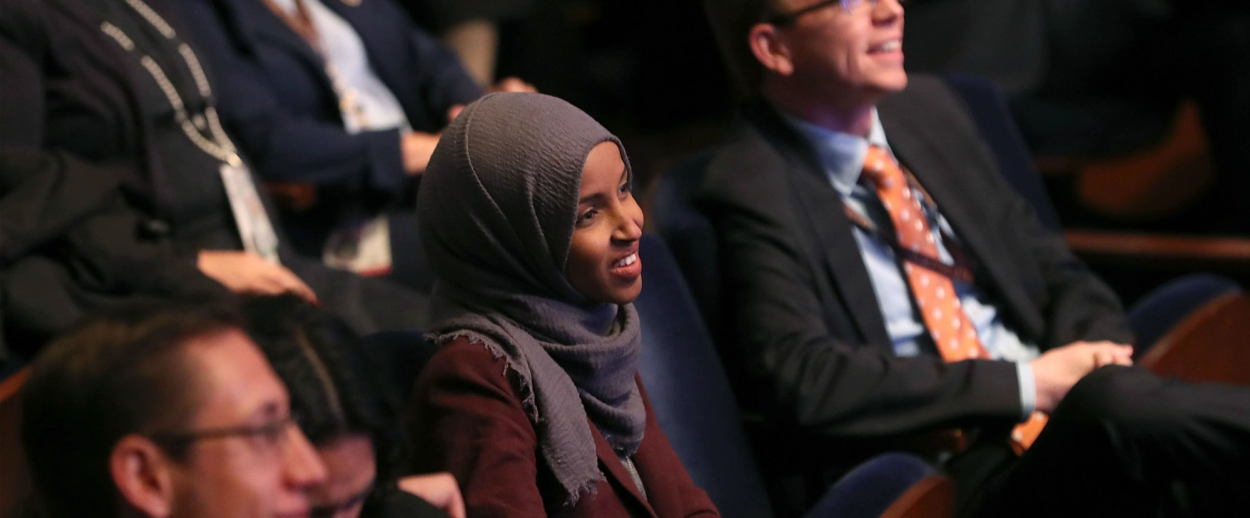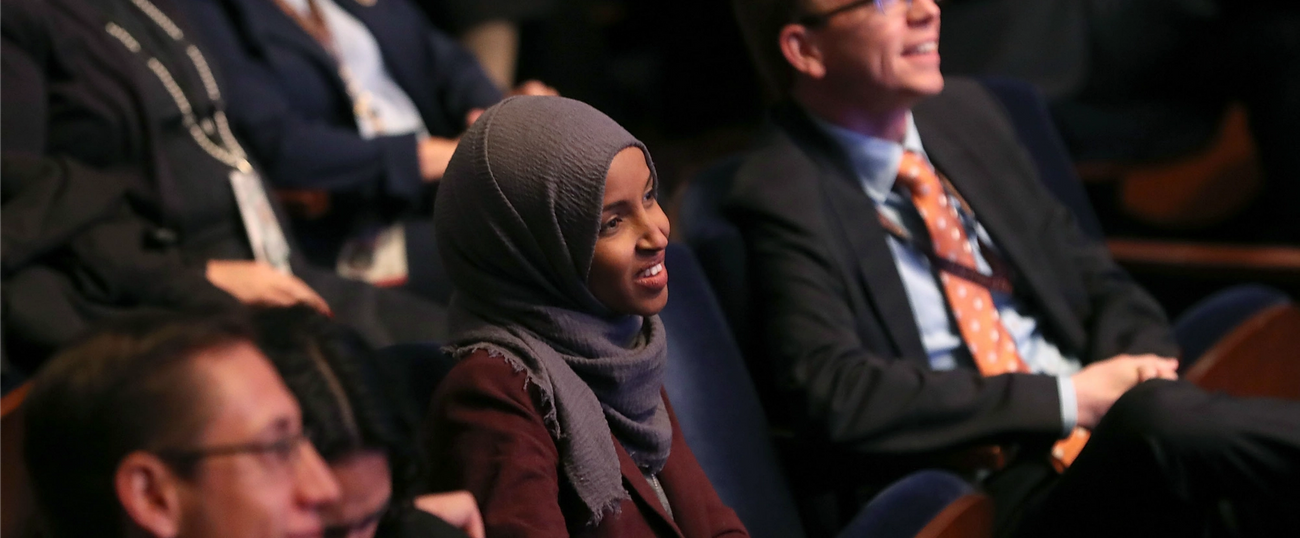The BDS Debate Enters its Next Phase
The movement is still on the fringes of American politics but with the Democrats pulling left it now has a seat inside Congress




With the midterm elections behind us the new Democratic coalition that led the party to its first House majority since 2010 is starting to come into focus. One outcome of the changes shaping the country’s political future: Boycotting Israel now lies within the spectrum of acceptable opinion within the Democratic Party.
The Boycott, Divestment, and Sanctions (BDS) movement is still nowhere close to the center of party discourse—no prominent Democrat is in favor of BDS, and Chuck Schumer, the outspokenly pro-Israel Senate minority leader, was narrowly correct when he told Jewish Insider, “Senate Democrats are very strongly pro-Israel and will remain that way” last week. Self-described socialist and frequent Israel critic Bernie Sanders, who is arguably the single most important figure in the party, has yet to endorse BDS in any form. Still, there will soon be multiple Democratic members of Congress who are in favor of the movement, and it’s an open question whether that will do anything to change the party’s historically pro-Israel orientation or endanger its popularity among American Jews, who still overwhelmingly vote for Democrats. BDS has now entered America’s governing institutions, carried in by the youngest members of an emerging and increasingly left-wing coalition. BDS has a seat inside the halls of power, even if it’s at the far edges. The question now is whether antagonism towards Israel will become a rallying cry or a liability for a party that appears to be moving in a more ideological direction.
This past week’s controversy over Minnesota congresswoman-elect Ilhan Omar’s support for BDS could be a preview of a coming intraparty boycott debate. A few days after her election, Omar announced that she “believes in and supports the BDS movement,” even if she still has “reservations on the effectiveness of the movement in accomplishing a lasting solution.” That’s a clear change from the stance she took during the primary when, addressing Minnesota’s Beth El synagogue, she affirmed Israel’s right to exist while saying BDS was “not helpful in getting that two-state solution.” The insincerity of her earlier hedging, a misleading nonposition she staked out in the midst of a six-way primary, now reads like a tacit admission that her actual views on the topic were unpalatable to some significant number of voters. Critics noted the cynicism of her tactics—indeed, any politician’s semireversal on any hot-button issue just days after getting elected to Congress would be notable.
But Omar won’t be the only pro-BDS Democrat in the coming Congress. Her bait-and-switch found a defender in Rashida Tlaib, the one-state solution supporter who will be representing Michigan’s 13th congressional district beginning this January. “My parents were both born in Palestine (Falastine). My sity [sic] still lives there. When my sister @IlhanMN is being attacked for supporting the #BDS movement (protected freedom of speech!) we can’t stay silent,” Tlaib tweeted on Nov. 16. “Nothing is more American than the fight for justice at home & abroad.”
Tlaib’s tweet is a road map for possible defenses of BDS within the Democratic Party. Omar’s election-week flip-flop doesn’t matter because the cause of justice and the Constitution are on her side. Tlaib’s assertion of her Palestinian-American identity gives the argument yet another layer of unassailability: If “justice at home and abroad” is an American value, then so is respecting the particular experiences and concerns of the various subgroups of which American society is comprised.
While Tlaib claims that Omar’s freedom of speech is under threat because she expressed an unpopular position, Omar is really being criticized for reversing an earlier position—the one she campaigned on to get elected—and for refusing to walk back a 2012 tweet accusing Israel of “hypnotizing the world,” which she defended just days before declaring her congressional candidacy.
We can already see the kind of rhetorical moves and linguistic maneuvers that may become a staple of the BDS debate now that it has entered Congress. Pushing for a boycott of Israel is constitutionally protected but Omar and other boycott advocates are calling for real changes in policy related to the Jewish state—divesting from or sanctioning an entire country takes things beyond the realm of mere speech. Tlaib is conflating action with advocacy, just as her blanket defense of Omar threatens to blur the lines between Tlaib’s political anti-Zionism and Omar’s more sinister insinuations.
Establishment figures like Schumer and other Democratic Party leaders are eager to downplay the possibility of any significant shift in the party’s long-standing support for Israel and some form of two-state solution—and with the pro-BDS faction representing a minimum of two out of 277 Democratic members of Congress, boycotts won’t be on the Democratic-led House’s agenda any times soon. Still, Tlaib’s tweet shows why BDS is also likely to be a divisive issue for the party in spite of its relative fringe status.
Armin Rosen is a staff writer for Tablet Magazine.